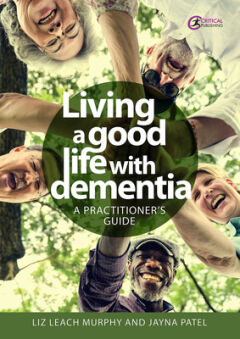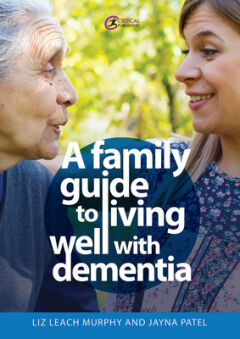Liz Leach Murphy has written two guides to living well with Dementia and shares key findings from her research.
Author: Liz Leach Murphy
Liz Leach Murphy has co-authored 2 guides to living well with Dementia and both are focused on showing that people diagnosed with dementia can continue to live full lives after a diagnosis. In this article Liz gives some background to her research and shares key findings from her work.
The idea for the books first sparked in 2016 when I was involved in delivering a conference on person-centred practice in Dementia Care. Whilst talking to other speakers at the conference, I identified the difference between the person-centred approach, established through Tom Kitwood's work, and the approach set out by the person-centred planning community and its founders.

The person-centred approach developed a focus on improving the care environment for those living within it, with a focus on improving the interaction between caregivers and care recipients. Whereas person-centred planning places emphasis on the person being at the centre of all decisions about their life; about life in community and self determination.
It quickly became clear that what we had learnt through years of delivering person-centred planning had the potential to add value within Dementia Care and Support.
My commitment started when one of the co-presenters at the Dementia conference asked if I would be interested in writing a book on the topic. I saw this as an opportunity to draw on the learning I had gained with people I had worked alongside who had been diagnosed with Dementia, covering what we did together to ensure that their life continued to be one they felt in control of and one with purpose and meaning.

This led to me conducting further research surrounding Tom Kitwood's work as well as the work conducted by his predecessors Dawn Brooker and Mike Nolan. I also spent time with people living with Dementia, their families and their voluntary and paid supporters. This was an opportunity to hear first hand what life was like for people and the support they had access to.
Through these conversations I discovered that:
In the development of the books there were a number of areas that stood out:
Our research for the books led us to make the following suggestions:
Both guides are published by Critical Publishing and co-authored by Liz Leach Murphy and Jayna Patel.
A Family Guide to Living Well with Dementia (2023) is available to buy at: https://www.criticalpublishing.com/a-family-guide-to-living-well-with-dementia
Living a Good Life with dementia – a practitioner’s guide (2021) Is available to buy at: https://www.criticalpublishing.com/living-a-good-life-with-dementia
The publisher is Citizen Network Research. Living Well with Dementia © Liz Leach Murphy 2024.
community, health & healthcare, Personalised Support, social care, England, Article